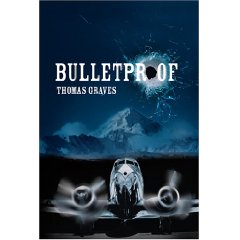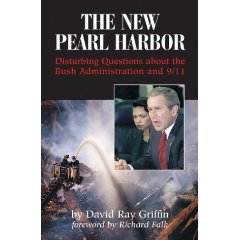I am a former Marine Corps Infantry officer, a clandestine case officer, the senior civilian responsible for founding the Marine Corps Intelligence Command, the author of books on intelligence, and since about 2001, the #1 Amazon reviewer for non-fiction about national security matters, into which category this book certainly falls.
For those who would doubt the depths to which privilege power might go to get its way, let me just point out that it is now a documented fact that the Joint Chiefs of Staff proposed the staging of a terrorist attack within the US that would murder U.S. citizens, in order to provide a pretext for an invasion of Cuba in the early decades of the Cold War. Do not ever under-estimate what the Dick Cheney's and Karl Rove's and Goldman Sach's of the world might be willing to do to further their profits. Also do not underestimate the power of blind mis-placed loyalty within the military, doing its “duty” to the President while overlooking its more sacred duty to the Constitution.
There are four aspects of this book that stand out with me, and that I believe warrant the appointment of a 12-person citizen's commission with full access, no holds barred, able to apply “Able Danger” data mining technologies to *all* materials bearing on 9-11.
First, I am absolutely persuaded by all my reading, that the Administration, the CIA, and the FBI, at a minimum were complicit in allowing 9/11 to happen, as a pretext for invading Afghanistan (for energy and drug reasons, since Rumsfeld let 3,000 Al Qaeda escape when we had them surrounded) and Iraq.
Second, I find the objective case, from Fire Engineering and other serious sources, against the buildings having been brought down by the fire, and instead that they were brought down by pre-placed explosives, to be sufficiently compelling so as to cast a reasonable doubt on the Administration's story, and hence a need for a full and open investigation.
Third, I find the objective case for a U.S. missile hitting the Pentagon, instead of Flight 77, to be, again, compelling enough to raise a reasonable doubt, particularly since no aircraft parts were recovered at the Pentagon and all bodies from the flight appeared in Dover without every appearing to have been transported from the Pentagon. I helped clean up a jet crash in San Diego long ago and there was luggage, seats, debris, everywhere. (The third one, the crater, looks like a bomb crater with a truck load of metal debris dumped in–military analysts scorn that one.
Fourth, the fact that relatives of George Bush were in charge of World Trade Center security, and that there was a total power down prior to the 9-11 event that would have allowed the explosives charges to be planted while also ensuring no security camara records, and that there were both insurance claims and stock futures transactions against key losers, that the Bush Administration continues to obscure, all suggest that this matter has not been properly investigated (see next comment).
I also read the author's follow-on book, The 9/11 Commission Report: Omissions And Distortions and I find that compelling as well. He recasts all that he knows from the previous book, into a parallel critique of the 9-11 Commission. While I consider the Commissioners to be individuals of very high integrity, I believe they failed in their dual mission of properly investigating this matter, and of devising recommendations to avoid failure in the future.
Taken together, the author's two books comprise a “People's Grand Jury” that surely calls for a People's Investigation. This would be something that receives funding form concerned philanthropists, and the focus of effort for popular investigation between now and November 2006.
See also the varied DVDs, and especially Webster Griffin Tarpley's 9/11 Synthetic Terror: Made in USA, Fourth Edition









